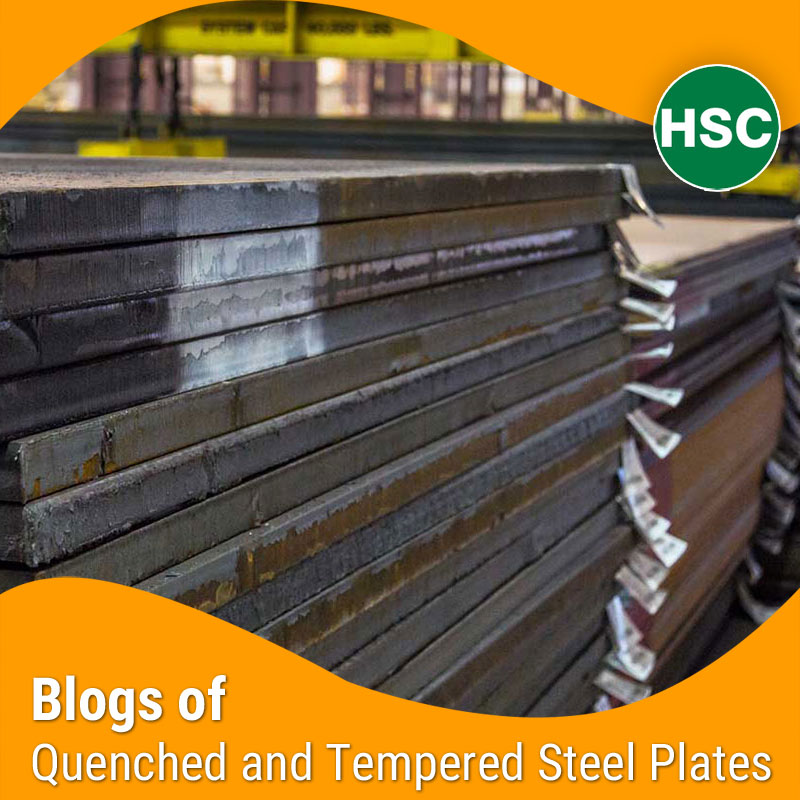EN 10025-6 is the Standard Used in Europe
In Europe, the standard for Quenched and Tempered (Q&T) steel plates is:
EN 10025-6: Hot-rolled products of structural steels – Part 6: Technical delivery conditions for flat products of high yield strength structural steels in the quenched and tempered condition.
This standard governs plate grades like S690QL, S890QL, S960QL, and others — ensuring every plate meets strict requirements for:
- Yield strength
- Tensile range
- Impact toughness
- Chemical composition
- Flatness, tolerances & CE markings
Why EN 10025-6 Exists – A European Fabricator’s Need
Europe’s engineering and infrastructure sector demands precision-grade materials for:
- Load-bearing structures
- Bridges, cranes, and offshore rigs
- Military & defense fabrication
- High-rise and lightweight applications
To ensure uniformity, weldability, and safety, EN 10025-6 was introduced as the definitive benchmark for Q&T plates.
It’s not just a quality standard — it’s a trust framework.
What Makes EN 10025-6 Unique Compared to Other Global Standards?
| Feature | EN 10025-6 | ASTM A514 / A517 | JIS G3106 (Japan) |
|---|---|---|---|
| Region | Europe (EU & EEA) | USA & North America | Japan & East Asia |
| Grades | S690QL, S890QL, S960QL | A514, T1 Steel | HITEN, SM490YA, SM570 |
| Focus | Structural yield + impact | Construction + pressure | General structural use |
| CE Compliance | Mandatory | Not applicable | Not required |
| Charpy Impact Requirement | Yes (–20°C to –60°C) | Optional | Limited |
EN 10025-6 is built specifically for structural steel plate buyers who demand traceable, tough, weldable materials.
Main Grades Under EN 10025-6 (Q&T Plates)
These are the most widely used quenched & tempered grades in Europe under this standard:
| Grade | Min. Yield Strength | Typical Applications |
|---|---|---|
| S460QL | 460 MPa | Moderate load structural steel |
| S690QL | 690 MPa | Bridges, cranes, trailers, heavy structures |
| S890QL | 890 MPa | Cranes, high-rise, performance chassis |
| S960QL | 960 MPa | Military, lifting arms, advanced machinery |
| S500QL / S700QL | 500–700 MPa | Lightweight modular structures |
The suffix “L” means it’s tested for low-temperature impact resistance (–40°C or lower).
“QL1” indicates it meets impact resistance at even colder conditions (–60°C).
What Does the EN 10025-6 Certification Include?
Every EN 10025-6-compliant Q&T plate must come with:
- EN 10204 3.1 or 3.2 Mill Test Certificate
- Heat number traceability
- Mechanical property confirmation (yield, tensile, elongation)
- Impact test results at specified temperatures
- Ultrasonic Testing (UT OK) if required
- Marking of plate grade, standard, size & CE stamp
Most European projects will not accept Q&T plates without these documents
CE Marking – Why It’s Mandatory in Europe
CE marking shows the plate meets EU construction product regulations (CPR).
Without CE, the plate cannot be used in permanent structural works within the EU.
Every EN 10025-6 plate must be CE-marked with:
- EN standard number
- Manufacturer ID
- Notified body reference (for CE)
- Year of manufacture
- Declared performance (on DoP certificate)
CE isn’t just branding — it’s part of European legal compliance
Why EN 10025-6 Matters for Buyers (Importers, EPCs, OEMs)
If you’re sourcing Q&T plates for Europe or a European-spec project, using plates without EN 10025-6 compliance can result in:
- Project rejection by the client or consultant
- Delay in third-party inspection approval
- Insurance and warranty complications
- Poor weld performance or unpredictable failure
Using EN 10025-6 certified steel ensures
- Easy clearance in CE-governed regions
- Safer, predictable fabrication outcomes
- Smoother quality documentation for EPC contracts
- Fewer surprises in performance-critical applications
Buyer Tip: What to Ask Your Supplier Before Buying
Before you finalize a purchase, ask:
- Do the plates carry EN 10025-6 certification?
- Are CE stamps visible on the plate or packaging?
- Is the MTC format EN 10204 3.1 or 3.2?
- Can they supply impact values at –40°C or –60°C?
- Is the plate surface UT-tested (S1E1 to S3E3)?
If any answer is vague or “no”, reconsider the supplier
Can Indian Manufacturers Comply with EN 10025-6?
Yes — Hindustan Steel Corporation offers:
- S690QL, S890QL, and S960QL plates
- With EN 10025-6 / EN 10204 3.1 certification
- CE-marked, tested, and compliant for export to EU nations
- Support for cut-to-size, 3.2 inspection, and project-based delivery
We export to clients in Germany, Italy, UAE (EU-based specs), and Southeast Asia who require CE-ready Q&T steel.
Voice-Search Optimized FAQs (SEO + AEO)
What standard is used for Q&T plates in Europe?
EN 10025-6 is the official European standard for quenched and tempered steel plates.
What does S690QL mean in EN 10025-6?
It refers to a steel plate with 690 MPa yield strength, low-temp impact tested at –40°C.
Is CE marking required for Q&T plates in the EU?
Yes. CE is mandatory for structural applications under EU Construction Product Regulation (CPR).
What is the difference between S690Q and S690QL?
S690QL includes low-temperature impact testing, while S690Q does not.
Can Indian suppliers offer EN 10025-6 certified plates?
Yes. Hindustan Steel supplies CE-marked Q&T plates with MTCs for export to EU regions.
What is an MTC 3.1 or 3.2 in EN steel plates?
It’s a test certificate format showing mechanical, chemical, and traceability data per EN 10204.
What’s the minimum impact value for S890QL?
27 Joules at –40°C, as per EN 10025-6 requirements.
Can I use Q&T plates without EN certification in Europe?
Not for permanent structures. Non-certified plates may be rejected during inspection.
Which grades are included under EN 10025-6?
S460QL, S690QL, S890QL, S960QL, and their QL1 variants.
How can I verify if my Q&T plate is EN certified?
Check for CE stamp, heat number, and test certificate (3.1 or 3.2) from the supplier.

